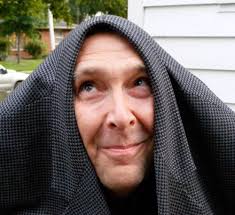So you dream of a day when disabled writers, artists, mechanics, parents, neighbors, young and old are customary at any event, in any space. You dream of this because it’s not only the proper dream for your temperament, or because of Jeffersonian values, or because you were once a girl scout, but because frankly, it’s a human vision, the most inclusive ever imagined, for disability intersects race, gender, ethnicity, sexual orientation, and all the manifold future shocks of epi-genetics. You dream of this because you went to college in the late sixties and early seventies when there was a burgeoning awareness of institutional complicity framing and supporting injustice. You read Herbert Marcuse and underlined: “The truth of art lies in its power to break the monopoly of established reality to define what is real.”
The national conference of the Associated Writing Programs or AWP in the year 2016 failed to include any disability literature among its hundreds of literary panels and presentations. Imagine had they failed to include any gay, lesbian, bi-sexual, trans-sexual, queer, gender fluid presentations, or a single panel devoted to writing by people of color or women? The outcry would be considerable, but not so with disability—a matter I consider shocking, not because able bodied people can’t conceive of disablement as a profound and universal element of human life, but because, (and here I shall echo Marcuse) there is no truth in art that does not break the monopoly of established reality). Gay reality is crippled reality; black reality is crippled reality; feminist reality—you get the picture.
So why does the national conference of the creative writing programs in higher education “not” get disability as an artistic seed bed, and perhaps the most inclusive of all marginalized categories, insofar as nearly everyone will have a disability at some point in this life? Why indeed. The answer lies in a paternalistic view of physical difference, a 1970’s model of the disabled as outliers who probably cost lots of money to include at the university; who must have a “special” office to handle their requests for whatever moist and inconvenient things they need. The rest of us able bodied professors fairly shiver at the prospects. These people have breathing tubes, motorized scooters, talk funny, or don’t talk at all. They have colostomy bags and crutches and sometimes they have wigs. They bring “down” the youthful, peppy, yoga-centric, aerobically charged, glossy entitlement of diversity filtered through the optics of good looks and vitality. Why a couple of years ago at their conference in Seattle, they hosted a poet with a disability who said publicly she’s not interested in that identity—would prefer to be understood as a real poet.
You see how it works? Real literature is GQ and Vanity Fair; it’s happy; and we all know those disabled writers can’t be happy—why in fact, disability is so hard, most of us university sponsored, middle class creative writer types imagine if we’re ever going to be disabled, well, by God! we shall commit physician assisted suicide! Do I gild the lily? Am I stuffing the owl? Perhaps. But leaving disability out of the conference, and then, pretending to afford something like awareness by hastily creating a “disability caucus” where the disenfranchised crippled writers can meet, and maybe even express their concerns, well, this is a kind of Uncle Tom business. When I hear separatism I know it for what it is.
Now having said these things, and having said them previously, and in turn, having vowed on my own part to never attend the AWP again so long as it’s both clumsy with its provision of accommodations for those who need them, and dismissive of disability as a literary culture, one every bit as good as the cultures of other alterities, I must also say that I’ve taken some hits. One disabled writer accused me of privilege, as in “having it” because I have a university teaching job and I’ve published a few books, some having received minor acclaim. My disapprobation with the AWP and its cynical “caucus” (insert here, “after the horse has left the barn we will give you a stall…” has cost me a good deal. Yes I have a job, and some books to my credit. But does anyone imagine that boycotting a conference that celebrates American writing is good for my spirit, my friendships, my own “networking” (whatever that may mean)?
Of course it’s not good for me. And it’s not good to be seen as a crank. (That hoary able bodied trope for the cripples, after all.) And it’s not good that my friends who aren’t disabled and who are right now scarfing down canapés and drinking merlot in Los Angeles aren’t talking about this scandalous culturally exclusive matter. That they don’t talk about it has everything to do with the Club Med dynamics of inclusion and sale-able diversity.
Lately poet Jillian Weise has been making some hilarious videos about the AWP and disability. Sporting a hideous blonde wig, and cradling a lap dog, Jillian offers us a persona, one “Tipsy Tullivan” a peachy, lubricious narrator who talks to the able bodied writing cabal with insouciance and back handed truth. I’m gladdened by Tipsy who I suspect has a tattered copy of Marcuse’s “One Dimensional Man” hidden behind her gladiolas.
Here is one of her righteous “vids”.

The word “privilege” levied as an insult is problematic because it assumes that the one who is called “privileged” has not worked hard, suffered discrimination, or endured any similar experience with the person lacking such privilege. Admittedly having a full-time university job is a privilege (I say this as an undervalued adjunct), but it’s not something handed to you by a whimsical old lady with a glittery wand. If it were, I should be spending more time looking for that person…
LikeLike
what the heck!?!
LikeLike